COP22: Russian Government Event Marred by Nuclear Controversy
Daniel V | November 18, 2016.
A side event organised by the Russian government on low-carbon development grew heated after activists tried to ask inconvenient questions of a representative of Russian state company Rosatom. Rosatom is one of the world’s leading nuclear companies, and is involved in the construction and operation of dozens of nuclear infrastructure projects around the world.
The side event began with a series of presentations from Russian business leaders in the nuclear, nanotechnology, and aluminium industries, after which the floor was opened to questions.
Following a series of questions to the panel, the microphone came to Tatiana Shauro from CAN International, who asked Rosatom executive Kiril Komarov about the threats and crackdown faced by environmentalist organisations working to oppose Rosatom projects.
Shauro mentioned the cases of Ecodefense! (Ekozashita) in Kaliningrad, For Nature (Za Priori) in Chilyabinsk, Zeleni Mir (Green World) in St. Petersburg, and Planta Nadezhda in Ozersk, which have either been charged under Russia’s “foreign agents” law, or faced intimidation from authorities. Many activists from these organisations have had to flee the country and this question was asked on behalf of Nadezhda Kutepova, a Russian activist who was forced to leave Russia with her three children after opposing Rosatom.
Komarov laughed and replied: “Do you feel threatened in Russia? That says it all.”
Reflecting on Komarov’s response, Shauro said, “instead of answering my question, they turned it at me. I don’t feel threatened, but that’s not a representative feeling of Russian civil society. His reply was absurd. It’s like saying there’s no hunger in the world because I’m not hungry.”
After Shauro’s question, moderator Oleg Pluznikhov tried to close the press conference, but was confronted by Vladimir Slivyak, co-chair of environmental organisation Ecodefense! (Ekozashita) and one of Russia’s leading anti-nuclear activists.
“Why are you not letting us ask any meaningful questions?” Slivyak asked. “We’ve gone to two of [Rosatom’s] press conferences, and they haven’t let us ask a single question. It’s embarrassing. No other country at the COP acts like this.”
Pluznikhov tried to assure Slivyak that all questions would be answered at a reception outside, but the coterie of Rosatom officials attending were quick to leave the venue.
In an interview after the side event Slivyak lamented, “They pretend they don’t know who we are, they act stupid when we raise our hands. They don’t want us to speak publically.”
“We just want to raise questions about the feasibility of their projects,” he added, “but they don’t like that. They’re here to advertise their companies to Arab and African leaders.”
Rosatom and other members of the nuclear industry has tried to establish a presence at COP22, with Rosatom executives joining leaders of the World Nuclear Association to tout the benefits of nuclear energy. Rosatom has particularly focused on markets in sub-Saharan Africa and across the Middle East, with Kamarov boasting during the COP that “in the Gulf, nuclear is the new oil.”
Slivyak suggests the industry’s efforts in Marrakesh evidence the company’s desperation rather than its social responsibility. “The nuclear industry has not really been at COP for fifteen years. Because nuclear power is so expensive, cost-ineffective, and slow to build it’s widely been discredited as an effective way to reduce emissions. Rosatom are here because the nuclear industry is in trouble. If they can’t repackage themselves as clean and get money from the climate process, the entire industry will be dead in next decades.”
“But that’s why it’s important we confront them. They are essentially trying to steal money that could be put more effectively into renewables and tackle climate change.”





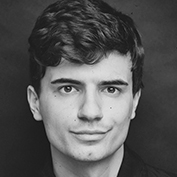
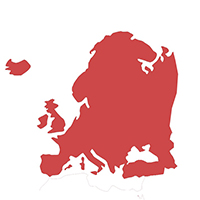
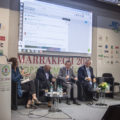
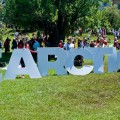
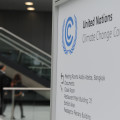



comment